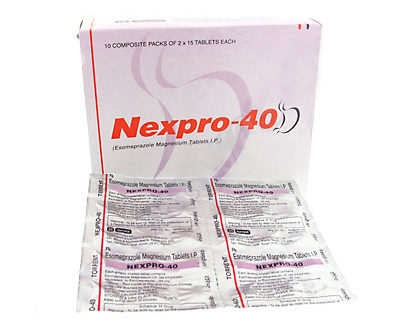If you’re experiencing memory problems, they may not be signs of a neurocognitive disorder, but they could be part of the normal aging process.
What is aging?
Aging is a natural process of life. As we age, the brain and body experience gradual changes. Some affect our physical and mental abilities and could increase the risk of disease.
Each of us experiences this process differently. The extent to which we experience these changes due to aging, and when these changes are most noticeable, varies from person to person.
According to the transform health and wellness, everyone can live a long, healthy life. This is called a healthy aging process.
What are the factors that influence the aging process?
Apart from genetic factors, the way we age depends on our lifestyle and environment.
In general, you can contribute to a transformation health through the healthy aging process by stimulating your brain, eating healthy, and being, among other things, physically and socially active.
Although these lifestyle choices do not guarantee a long and healthy life, they are the best options for reducing the risk of disease and ensuring our well-being as we age.
Will my memory get worse as I get older?
As we age, it is natural to be concerned about changes in our mental abilities. We want to get on with our daily activities, be self-sufficient, and relive the most precious moments of our lives without worrying about our memory, and in particular, Alzheimer’s disease or another neurocognitive disorder.
Most will not experience any memory issues
As we age, most of us will continue to have good memories. Our memory faculties will not decline rapidly or sharply. As we grow older, we will remember the knowledge and skills we have acquired throughout our lives.
Some of us will have memory problems
Nearly 40% of us will have some form of memory loss after age 65. But, even if one has memory loss, one is still unlikely to have a neurocognitive disorder. For the most part, memory loss is quite minimal and allows us to continue our daily lives without interruption.
A small percentage of people will have Alzheimer’s disease or another neurocognitive disorder
The WHO estimates that after the age of 60, 5-8% of us will suffer from a neurocognitive disorder at some point during the rest of our lives. Symptoms, including memory loss, worsen to such an extent that our abilities deteriorate, and we are ultimately unable to take care of ourselves.
Why are the percentages of people with memory loss and those with neurocognitive disorders so different? Simply put, there are different degrees of memory loss…and not all of them are caused by neurocognitive disorders. So how can we tell the difference?
The different levels of memory loss
Memory disorders associated with age
If you have memory loss, but these:
- Do not visibly interfere with your daily life
- Do not affect your ability to carry out your usual tasks
- Don’t keep you from learning and remembering new things
- Are not caused by another medical problem
Then you have what is called age-associated memory impairment.
These memory problems are part of the normal aging process and do not mean that you have a neurocognitive disorder.
Although you might have trouble remembering things occasionally, like where you kept your keys, a website password, or an old classmate’s name, those aren’t the signs. Alzheimer’s disease or another neurocognitive disorder. You may not remember things as quickly as you used to, but most of the time that’s nothing to worry about.
Mild cognitive deficit
Between age-associated memory impairment and neurocognitive impairment is mild cognitive impairment (MCI). As the name suggests, the symptoms are mild: you may experience memory loss and other symptoms, such as difficulty expressing yourself and problems finding your way around, but they are not as severe as to occur. interfere with your normal daily routines and functions.
However, if you have MCI, you are at a higher risk of developing Alzheimer’s disease or another type of neurocognitive disorder than if you had age-associated memory impairment.
Alzheimer’s disease and other neurocognitive disorders
When the memory loss is so dangerous, that:
- Affects your daily life and your ability to follow your normal routine
- Prevents you from learning new things
- Prevents you from performing familiar tasks
- That your loved ones notice changes in your abilities
So, your memory problems are what people experience in the early stages of Alzheimer’s disease or another neurocognitive disorder.
However, the only way to be sure is to see your family therapy near me and take a diagnostic test.
Compare the signs
Memory problems associated with the normal aging process and neurocognitive disorders can be differentiated in various ways.
Signs of Memory Loss Associated with the Normal Aging Process
- You can’t remember the details of a conversation or event that happened a year ago.
- You no longer remember the name of an acquaintance.
- You occasionally forget things or events.
- You sometimes have difficulty finding your words.
- Your memory worries you, but your friends and loved ones don’t worry.
Signs of neurocognitive disorders
- You no longer remember the details of a recent event or a recent conversation.
- You don’t recognize your family members, or you can’t remember their names.
- You frequently forget things or events.
- You frequently pause to find your words and use one word instead of another.
- Your memory worries your friends and loved ones, but you perceive no problem.
More useful links and resources
Memory tips and tricks. Alzheimer Society of America, 2018. If you’re having mild difficulty with your memory, use this fact sheet for ideas and suggestions to help you manage your memory loss. The strategies contained in this sheet are offered to you by people with memory loss.
I have trouble remembering things; does this mean I have dementia? (In English) freedom Films, 2013. This short, animated film discusses the differences between the signs associated with neurocognitive disorders and memory loss that occurs as part of a normal aging process. This video was created by Dr. Sabina Brennan of Trinity College Dublin and Trinity Brain Health.





